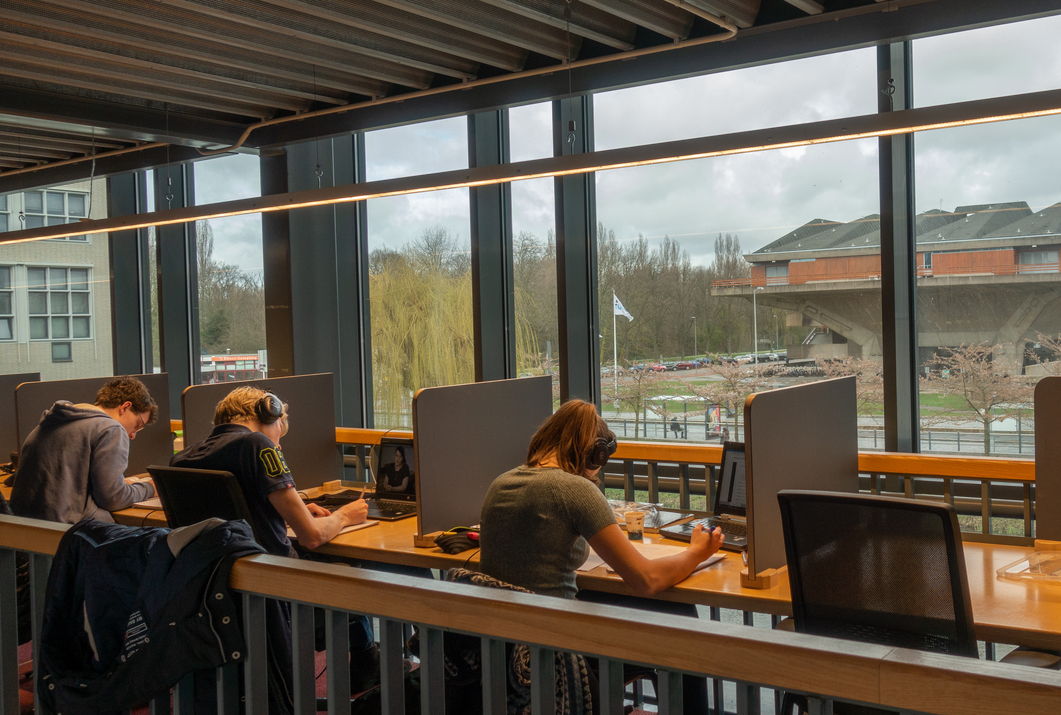The Student Council’s many questions about the impact of TU Delft’s corona measures at its first online meeting with the Executive Board caused the meeting to run over time.
Students on campus, just before the coronary measures took effect and students had to stay at home. (Photo: Lucas de Leeuw)
That the corona crisis is affecting everyone, is nothing new. The workload of teachers, professors and other TU Delft staff has increased because of the extra work that teaching digitally and working from home bring. In turn, students were in a stew about the quality of the digital teaching and the uncertainty about whether important online exams would go ahead or not. Financial troubles were becoming more urgent too. Students still have to pay their monthly bills while many have lost their income because of losing their part-time jobs or flexible work.
International students are expressing their concerns about their financial situation more frequently. Students from outside the European Union, for example, pay more tuition fees than their Dutch and European counterparts. The corona crisis is making it more difficult for them to meet their financial obligations. Some students have not only lost their part-time jobs, but the money they receive from their parents too. Yet rent, living expenses and periodic tuition fees continue.
‘TU Delft is bound to legislation and regulations’
Financial support
During the first online consultation meeting with the Executive Board, the Student Council parties Lijst Bèta and ORAS asked Vice Rector Magnificus Rob Mudde what TU Delft is doing to support international students and exchange students. Mudde explained that it is virtually impossible to help these students financially as TU Delft ‘is bound to legislation and regulations’. TU Delft can only help students financially in individual cases. “But students who have problems because of the corona crisis do not count as individual cases,” he said.
Exchange students whose studies are delayed or experience other problems must approach their own educational institution, says Mudde.
The subject of the exam period now underway was also a subject of discussion at the meeting. Teachers had only a very short space of time in which to turn their written exams into digital versions. For students, they only heard a little in advance whether and which exams would go ahead and which were postponed, asserted Lijst Bèta and ORAS. Mudde expects the Q4 exam period to be less chaotic as teachers and other staff members have been able to draw lessons from the Q3 exam period.
Do you have a question or comment about this article?
a.m.debruijn@tudelft.nl


Comments are closed.